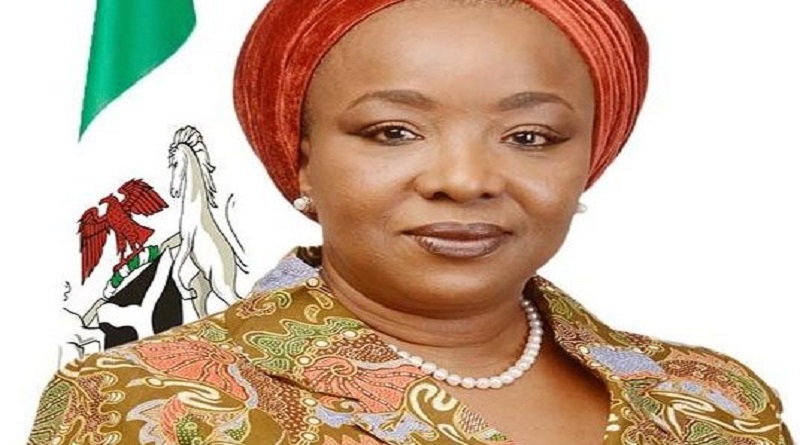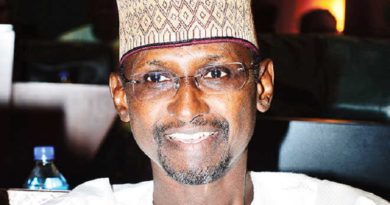FG unveils national biosecurity policy on health, environmental safety
The Federal Government on Tuesday unveiled a National Biosecurity Policy and Action Plan, 2022 to 2026, to secure the health of Nigerians and their immediate environments from biological threats.
Chief Sharon Ikeazor, Minister of State for Environment, who unveiled the policy in Abuja, said that the policy would help to sustain socio-economic development across the country.
The Unveiling and Public Presentation of the National Biosecurity Policy and Action Plan (NBP&AP), 2022-2026, was organised by the National Biosafety Management Agency (NBMA).
Ikeazor said that biosecurity is a strategic and integrated approach that encompasses the policy and regulatory frameworks.
She said that the framework includes instruments and activities that analyse and manage risks in the sectors of food safety, animal life and health, plant life and health which associated environmental risk.
“It focuses on preventing the loss, theft, misuse, diversion or intentional release of pathogens, toxins, and other related assets against humans, animals, plants and the environment.
“It also focuses on putting measures in place to mitigate naturally occurring and emerging infectious diseases.
“Biosecurity is more important today than ever before due to the increasing threats of climate change which is altering the range, habitats and spreads of pests and diseases.
“It is estimated that zoonotic infections, transmitted from animal hosts to humans, account for approximately 60 per cent of total infectious diseases in humans, and 75 per cent of all new and emerging infectious diseases.
“The threats posed by pathogens jumping from animals to humans as well as the destruction of the environment cannot be effectively addressed by one sector alone,’’ she said.
Ikeazor said that the development of the policy recognised that a collaborative, multi-sectoral and interdisciplinary approach is key to the mitigation of bio-threats and the success of any national biosecurity intervention.
She noted that the policy is strategically designed as a five-year plan with the intent to identify other several evolving actions that may have not been captured in the document when commencing the implementation.
“Therefore, all implementing Ministries, Departments and Agencies (MDAs) are tasked to put all hands on deck to ensure that we effectively implement the policy.
“The MDAs should also help support the ministry through the NBMA in evaluating how well we have done in the biosecurity sector, as well proffer critical way forward for the next review of the policy.
“The obligation in the implementation of this policy is that we play our specific roles and synergistically work with each other in line with our respective mandates.
“The mandates are guaranteeing a strong aggregation and unified efforts that will strengthen Nigeria’s National Biosecurity System.
“We must also aggregate our efforts at managerial level in ensuring an improved budgeting and funding mechanism in achieving our strategic plans considering the fact that biosecurity is now a national priority.
“We at the ministry as focal point will as much as we can, consistently advocate for adequate budgetary provisions for different implementing MDAs to help achieve their specific biosecurity roles in line with their mandates,’’ the minister said.
Dr Rufus Ebegba, Director-General of NBMA, said that the draft biosecurity policy and action plan, developed by the agency, institutionalised a harmonised and workable biosecurity system.
Ebegba said that the policy is a fundamental approach to minimising the risks of biological threats to the environment, human health, animal and plants.
He said that the agency`s activity was delivered through a one-health-approach agriculture, environment and human health with full knowledge that bio-threat prevention and control require effective collaboration between relevant stakeholders.
He, however, thanked the minister and other stakeholders for making the policy a reality.
The director-general said that the agency, with collaboration of other relevant stakeholders, would as well ensure that the policy is effectively implemented.
Mr Kevin Tokar, Acting High Commissioner of Canada in Nigeria, said that his country would continue to partner with Nigeria to strengthen the national and regional biosecurity capabilities.
Tokar said that the Canadian government had contributed more than US$ 8 million to strengthen Nigeria`s capacity to prevent, detect and respond to biological threats.
According to him, “our support includes the construction, operation and maintenance of bio-containment laboratories in Lagos and at the National Veterinary Research Institute in Vom, Plateau State.
“Our government will continued its commitment to strengthening biosecurity and health security capacities in Nigeria as well as Africa,” he said.
By Vivian Emoni




